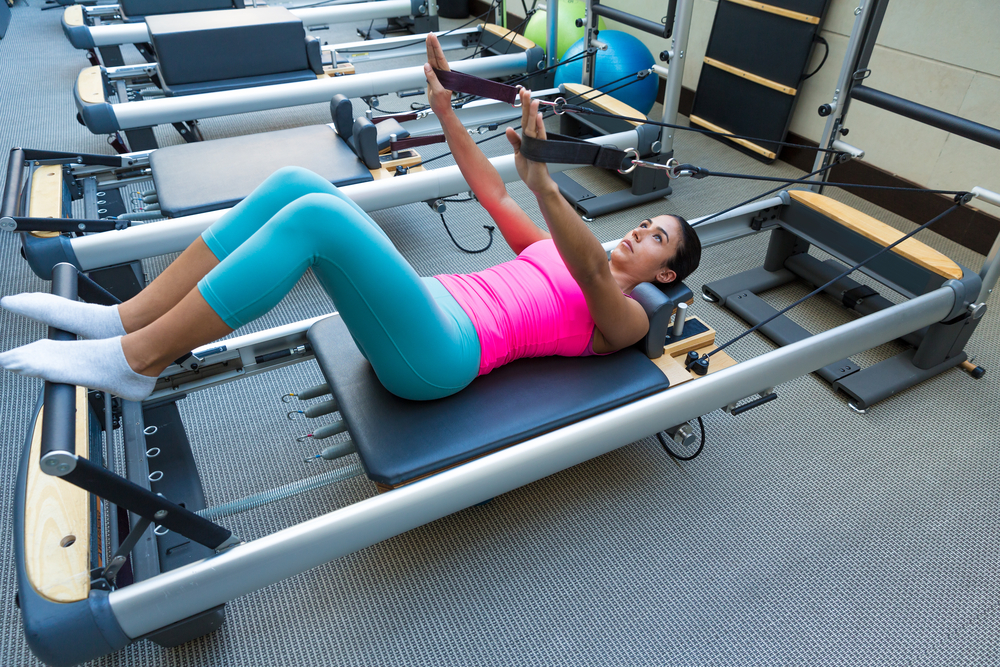
Why Clinical Pilates Should Be Your Go-To Workout: The Science Behind Its Effectiveness
A well-liked exercise technique that is gaining popularity worldwide is Clinical Pilates. It is a style of exercise that uses specialised apparatus and exercises to target strengthening, posture improvement, and injury rehabilitation. It’s understandable why so many people are making Clinical Pilates their preferred form of exercise given its wealth of advantages and successful track record. In this article, we’ll look at the science underlying Clinical Pilates’ efficacy and why you should incorporate it into your fitness regimen.
The Mechanism Of Clinical Pilates
Due to its success in enhancing both physical and mental health, clinical Pilates has become a more and more well-liked form of exercise. This exercise’s emphasis on core strength, stability, and control is what gives it its scientific foundation.
Clinical Pilates can enhance balance, flexibility, muscle strength and endurance, according to research. Slow, controlled movements are used in Clinical Pilates exercises to work deep stabilising muscles in the core, hips, and spine. Traditional exercise programs frequently overlook these muscles, but strengthening them can enhance general movement patterns and lower the risk of injury.
Additionally, Clinical Pilates has been demonstrated to enhance alignment and posture, which can lessen stress on the joints and lessen pain. It has a beneficial effect on mental health as well because it can lessen stress and anxiety, lift mood, and improve general well-being.
Scientific research has supported the benefits of Clinical Pilates and is still investigating these benefits today.
Benefits Of Clinical Pilates
Clinical Pilates is a form of exercise that has numerous benefits for people of all ages and fitness levels. Here are some of the benefits of incorporating Clinical Pilates into your workout routine:
- Improved core strength: Clinical Pilates focuses on strengthening the deep muscles in your core, which can improve your overall stability and balance.
- Increased flexibility: The slow and controlled movements in Clinical Pilates can help increase your flexibility and range of motion, reducing your risk of injury.
- Better posture: Clinical Pilates exercises emphasise proper alignment and posture, helping to reduce pain and discomfort in the neck, back, and shoulders.
- Reduced stress: Clinical Pilates can be a great way to reduce stress and improve your mood. Mindful and controlled movements can help calm the mind and improve mental clarity.
- Enhanced athletic performance: Clinical Pilates can help improve your overall athletic performance by increasing strength, flexibility, and balance.
- Rehabilitation: Clinical Pilates can be used as part of a rehabilitation program for those recovering from injury or surgery, helping to improve strength and mobility.
These are just a few of the many benefits of Clinical Pilates that can improve your overall health and well-being.

Getting Started With Clinical Pilates
Getting started with Clinical Pilates may seem intimidating, especially if you are new to the practice. However, with the right guidance and instruction, anyone can learn and benefit from this form of exercise.
The first step to getting started with Clinical Pilates is finding a qualified instructor or studio. Look for instructors who are certified by reputable organisations and have experience working with clients of all levels and abilities.
Once you have found an instructor, your first session will likely involve an assessment of your fitness level and any specific areas of concern or injury. This information will be used to design a personalised program that meets your unique needs and goals.
During your sessions, you will work on a variety of exercises that focus on building core strength, improving flexibility, and increasing overall body awareness. Your instructor will guide you through each movement and help you maintain proper form to prevent injury.
It is important to remember that progress in Clinical Pilates is gradual and consistent practice is key. Don’t be discouraged if you don’t see immediate results – with dedication and commitment, you will begin to notice improvements in your strength, flexibility, and overall health over time.
Overall, getting started with Clinical Pilates is a great way to improve your fitness and overall health. With the guidance of a qualified instructor, you can safely and effectively build strength, increase flexibility, and improve your body awareness.
Final Thoughts
The science behind clinical pilates is compelling, highlighting the many benefits it can bring to your physical and mental health. By choosing clinical pilates, you can experience improved strength, flexibility, posture, and injury prevention. To get started, seek out a qualified instructor who can provide personalised guidance and support as you work towards your fitness goals.
At Upwell Health Collective, our experienced team of clinicians are dedicated to helping you achieve optimal health and well-being through clinical pilates and other evidence-based therapies. Contact us today to find out how we can help you revolutionise your fitness routine and achieve your best self.
Please get in touch with us at Upwell Health at (03) 8849 9096 or book an appointment today.
